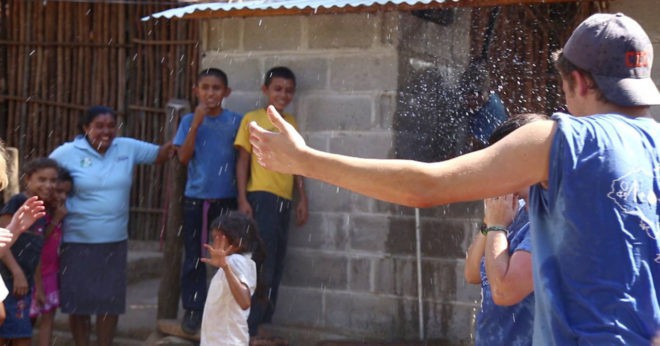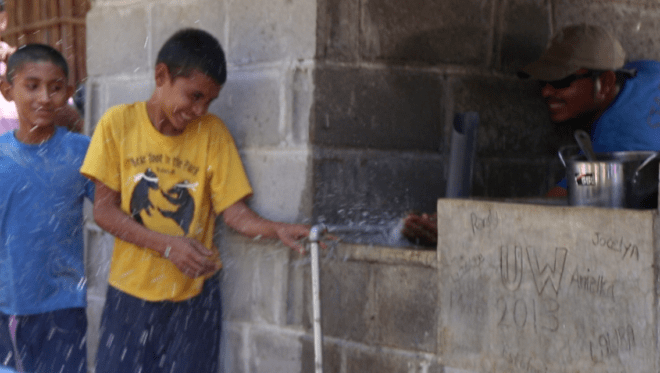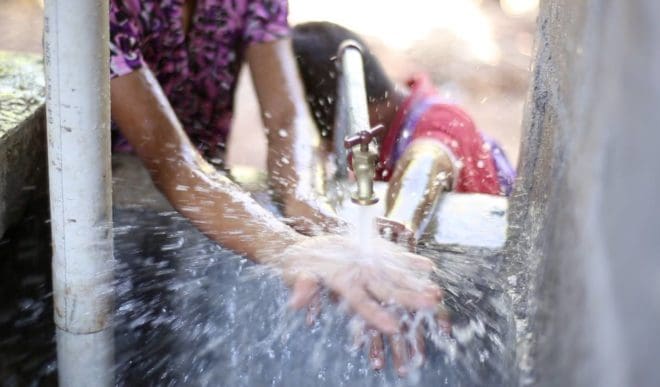Project Overview
Global Brigades built its first water system in the southern region of Honduras in the community of El Ojochal. This system provides clean water to over 250 beneficiaries.
El Ojochal, Honduras
El Ojochal never had a centralized water system providing an adequate supply of clean water to all members of the community. Prior to Global Brigades’ arrival, there was a water system, however, just twelve houses were connected to the system and it only functioned sporadically. Community members had also attempted to build a well to increase the supply of water in the community, however, they could not find water despite digging approximately 40 meters below the surface. Therefore, community members had to walk for upwards of one hour on a rocky path to arrive at the nearest water source and then carry the water home in containers. Given that each person can only carry a certain quantity of water, most reported walking to the water source several times per day. During the dry season, the trip was often even longer as the closest sources would dry-up. Regardless of how where they found water, there was no central treatment and few families treat the drinking water within their homes, increasing the risk of waterborne disease.
Water System Solution
Water Brigaders from eleven different universities worked in El Ojochal between December 2013 and February 2014. During that time, student volunteers worked with community members to:
• Drill an 85-foot deep well providing access to 200 gallons of water per per minute
• Install a pump to send water from the source to the storage and chlorination tanks
• Install roughly 2,500 meters of pipeline forming the distribution network
• Build a 10,000 gallon storage tank
• Install water connections to all houses
• Provide educational workshops to children in the community’s primary school on water and health related topics.
In addition to conducting workshops in El Ojochal’s primary school in order to ensure project sustainability by education the community about water usage and basic hygiene, student volunteers on Water Brigades also worked with students on Public Health Brigades to host a Health and Hygiene fair in January 2014. During the extremely successful event, community members and their children visited a variety of booths designed to teach them about hygiene and sanitation. To ensure the sustainability of the project, a Water Council was established and trained by Water Brigades in addition to a Basic Sanitation Committee also trained by Water Brigades.
Water Project Stages
All stages of this water project have been completed.




